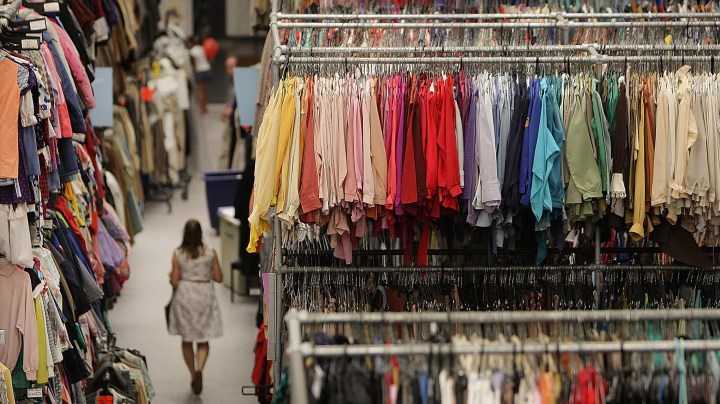
Fall fashion braces for the effects of COVID-19

About 40% of the clothes Americans wear come from China. And because of dislocations caused by the virus, retailers are looking elsewhere to fill the supply chain gap.
For a suit, the materials (the fabric, buttons and zippers) may come from China. It might then get sewn in Vietnam.
“But, if you don’t have fabric you can’t make a coat in Vietnam,” said Gary Adelman, CFO of Texas-based menswear company Trybus. Trybus clothing lines are sold at Nordstrom and Kohl’s.
Roughly 30% of the company’s supply comes from China — it uses factories in five countries. Trybus is looking at spreading the work around to rely less on China.
“I don’t think we’re at losing sleep level yet, but we’re definitely taking it very seriously,” Adelman said.
Sucharita Kodali, an analyst at Forrester, said most apparel companies aren’t in a state of emergency yet. They started moving business out of China a decade ago because of increasing costs and, in the last couple of years, because of the trade war. Those changes are paying off even more now that supply from China is at risk.
“The fact that these companies often do have diversified supply chains enables them to shift some of the production where possible,” Kodali said.
Asia has a hold on the apparel market, with Vietnam and Bangladesh coming in after China. And according to Julie Hughes, president of the U.S. Fashion Industry Association, more companies are moving production to Africa. What about American factories stepping in?
“You need to be able to move immediately for production. And we don’t have a lot of apparel production in the U.S. today,” Hughes said.
U.S. factories can’t compete with Asia’s quick churn. And, Hughes says, China is still the place to make complicated pieces like sweaters and difficult-to-make fabrics like cashmere and silk.
For Adelman, the production slowdown in China isn’t affecting what’s on shelves now, but what’s coming down the line a few months from now. The company’s fall 2020 collection could look a bit like fall 2019.
“Fashion is fickle. It’s hard,” he said.
Adelman says Trybus may have to reuse some of last year’s inventory and update it with different buttons or new trim.
There’s a lot happening in the world. Through it all, Marketplace is here for you.
You rely on Marketplace to break down the world’s events and tell you how it affects you in a fact-based, approachable way. We rely on your financial support to keep making that possible.
Your donation today powers the independent journalism that you rely on. For just $5/month, you can help sustain Marketplace so we can keep reporting on the things that matter to you.












